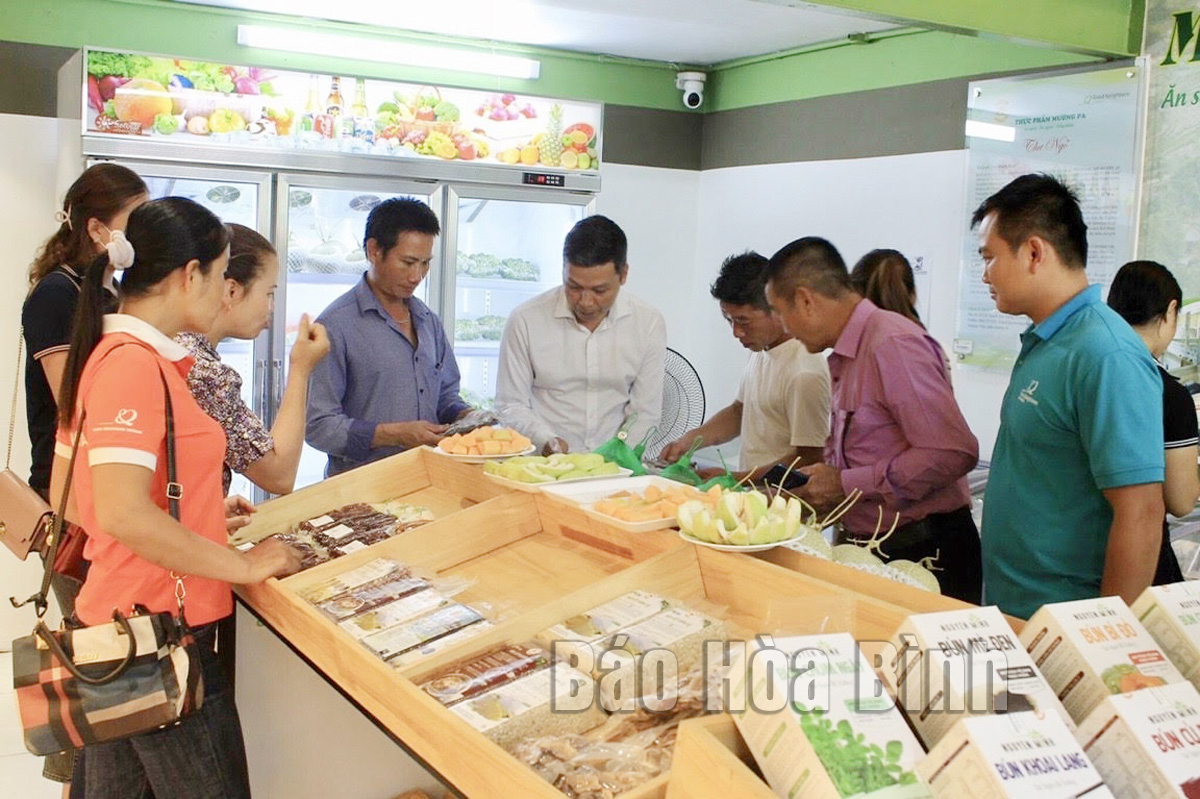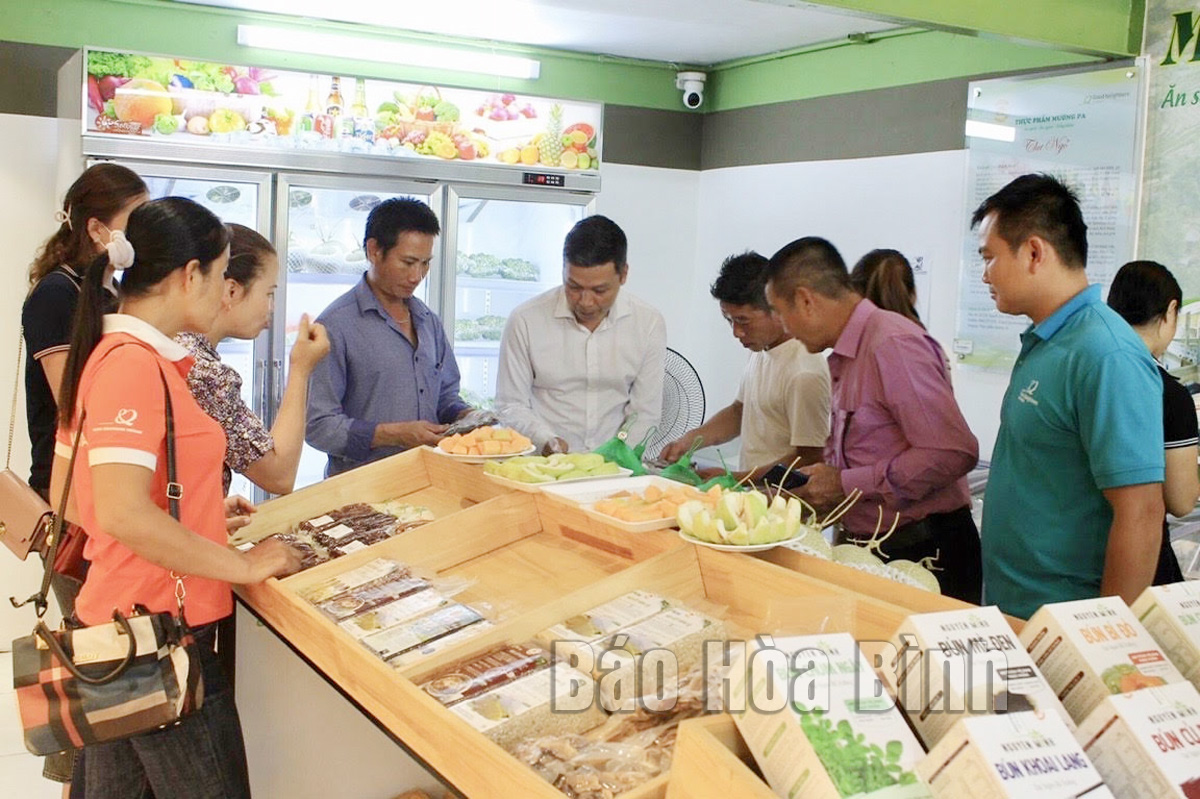
(HBO) – Chapters of all levels of the Hoa Binh farmers’ association have been taking practical activities to promote safe practices in the production, processing, and distribution of agricultural products. Currently, hundreds of products supplied by the members are on sale at reasonable prices across the association’s system of safe farm produce stores.
At the Muong Pa clean food store in Mai Chau
township.
In 2020, Song Da, the first safe farm produce store of the
association, was established in Hoa Binh city’s Quynh Lan ward.
Nguyen Thu Trang from the city’s Huu Nghi ward said the
store has helped alleviate her anxiety for food safety whenever preparing meals
for her family thanks to its products with traceable and trustworthy origins.
Currently, Hoa Binh province has five stores of this kind in
Hoa Binh city and the districts of Kim Boi, Mai Chau, and Luong Son. These
food-safety-certificated locations are frequently inspected by competent
agencies, with its businesses involved trained on safe practices regarding
production, trademark and geographical indication registration, packaging, and
origin tracing.
In the first nine months of this year, via the system, more
than 25 tonnes of oranges, veggies, fruits, and fishes, among others, were
distributed.
Hoang Duc Bien, vice president of the association, said the
system has brought about "double" benefits to both customers and
producers as it serves as a bridge to bring safe farm produce to consumers.
He noted that this distribution channel has made a
consideraable contribution to forming the mindset of using and consuming
products of clear origin, high quality, which encourages producers to focus on
quality improvement serving their better competitiveness and protection of
public health.
To operate more safe food stores, the association has planned
to increase its communications campaigns to spread legal knowledge on the
matter; promote the operation of a farmer support centre; diversify products on
sale; and boost sci-tech application for higher quality./.
According to data from the Hoa Binh Provincial Party Committee, the industrial production index for the first six months of 2025 is estimated to have increased by 20% compared to the same period last year. This marks the highest year-on-year growth rate for this period since 2020.
In the first six months of 2025, Hoa Binh province’s export turnover was estimated at 1.145 billion USD, marking an 18.11% increase compared to the same period in 2024. Import turnover was estimated at $ 804 million, a 17.15% increase, which helped the province maintain a positive trade balance.
The lives of the ethnic minority farmers in Tan Lac district have gradually improved thanks to the new directions in agricultural production. This is a testament to the collective strength fostered through the professional associations and groups implemented by various levels of the district’s Farmers’ Union.
With the motto the "product quality comes first,” after nearly one year of establishment and operation, Muong village’s Clean Food Agricultural and Commercial Cooperative, located in Cau Hamlet, Hung Son Commune (Kim Boi district), has launched reputable, high-quality agricultural products to the market that are well-received by consumers. The products such as Muong village’s pork sausage, salt-cured chicken, and salt-cured pork hocks have gradually carved out a place in the market and they are on the path to obtaining the OCOP certification.
In the past, the phrase "bumper harvest, rock-bottom prices" was a familiar refrain for Vietnamese farmers engaged in fragmented, small-scale agriculture. But today, a new spirit is emerging across rural areas of Hoa Binh province - one of collaboration, organisation, and collective economic models that provide a stable foundation for production.
Maintaining growing area codes and packing facility codes in accordance with regulations is a mandatory requirement for agricultural products to be eligible for export. Recently, the Department of Agriculture and Environment of Hoa Binh province has intensified technical supervision of designated farming areas and packing facilities to safeguard the "green passport" that enables its products to access international markets.



